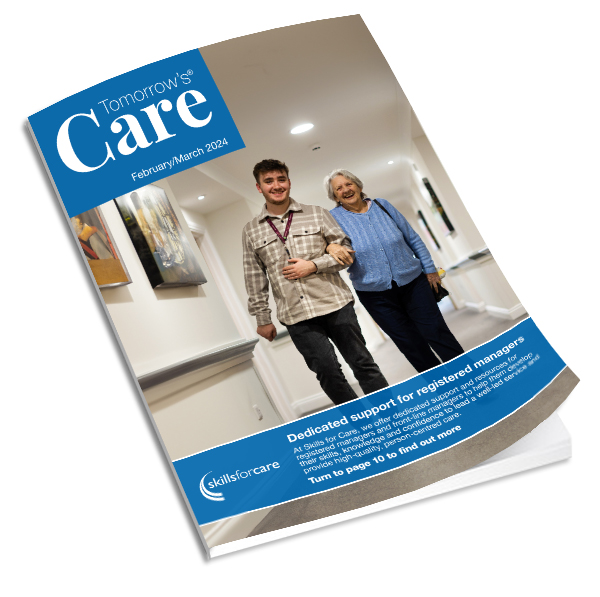You are here
- Home
- >
- NICE anxiety
NICE tackles availability of anxiety treatment

Published on 01/06/2014
The National Institute for Health and Care Excellence (NICE) has issued standards to improve the quality of care and support for children, young people and adults with anxiety disorders.
Anxiety disorders are types of common mental health disorders that include generalised anxiety disorder, social anxiety disorder, post-traumatic stress disorder, panic disorder, obsessive-compulsive disorder and body dysmorphic disorder, all of which are covered in the NICE quality standard. Although anxiety disorders vary considerably in their severity, they are associated with significant long-term disability and can have a lifelong course of relapse and remission. In children and young people they are also associated with an increased risk of other serious mental health problems, including depression and substance misuse.
Recognition of anxiety disorders is poor, particularly in primary care and as a consequence only a small minority of people experiencing anxiety disorders ever receive treatment. And even when anxiety disorders are diagnosed, treatment is often limited to the prescription of drugs rather than offering evidence-based psychological interventions which NICE recommends as first-line treatments.
A snapshot of anxiety disorders in adults in England over a one-week period carried out by the Office of National Statistics in 2007 found that 4.4% of adults had generalised anxiety disorder, 3% had post-traumatic stress disorder, 1.1% had panic disorder and 1.1% had obsessive-compulsive disorder.
Professor John Cape, Head of Psychology at Camden and Islington NHS Foundation Trust and member of the committee which developed the standards said: “Anxiety disorders are common, distressing and often disabling, yet people are often unaware they have a condition that can be helped by psychological or other treatment. The Anxiety Disorders Quality Standard makes clear to doctors and other health professionals the importance of identifying the specific anxiety disorder people are suffering from and ensuring they are offered an effective psychological treatment.”
Anxiety disorders are types of common mental health disorders that include generalised anxiety disorder, social anxiety disorder, post-traumatic stress disorder, panic disorder, obsessive-compulsive disorder and body dysmorphic disorder, all of which are covered in the NICE quality standard. Although anxiety disorders vary considerably in their severity, they are associated with significant long-term disability and can have a lifelong course of relapse and remission. In children and young people they are also associated with an increased risk of other serious mental health problems, including depression and substance misuse.
Recognition of anxiety disorders is poor, particularly in primary care and as a consequence only a small minority of people experiencing anxiety disorders ever receive treatment. And even when anxiety disorders are diagnosed, treatment is often limited to the prescription of drugs rather than offering evidence-based psychological interventions which NICE recommends as first-line treatments.
A snapshot of anxiety disorders in adults in England over a one-week period carried out by the Office of National Statistics in 2007 found that 4.4% of adults had generalised anxiety disorder, 3% had post-traumatic stress disorder, 1.1% had panic disorder and 1.1% had obsessive-compulsive disorder.
Professor John Cape, Head of Psychology at Camden and Islington NHS Foundation Trust and member of the committee which developed the standards said: “Anxiety disorders are common, distressing and often disabling, yet people are often unaware they have a condition that can be helped by psychological or other treatment. The Anxiety Disorders Quality Standard makes clear to doctors and other health professionals the importance of identifying the specific anxiety disorder people are suffering from and ensuring they are offered an effective psychological treatment.”
Categories
- CQC ratings
- Care home news
- Care jobs
- Care planning
- Care sector awards
- Care sector events
- Care sector news
- Care staff
- Charity
- Cleaning & Hygiene
- Construction
- Dementia
- Disability
- Entertainment
- Finance
- Fitness
- Food & Drink
- Fundraising
- Furniture
- Health & Safety
- Healthcare
- Hospice & Palliative Care
- Hospitals
- Industry Comment
- Interiors
- Laundry
- Legal
- Leisure
- Medication
- Mental Health
- Mobility
- New appointments
- PPE
- Products
- Property
- Recruitment
- Relationships
- Research
- Safeguarding
- Security
- Services
- Social care
- Sustainability
- Technology
- Training
- Transport
- Uniforms
- Waste
- Wearables

















